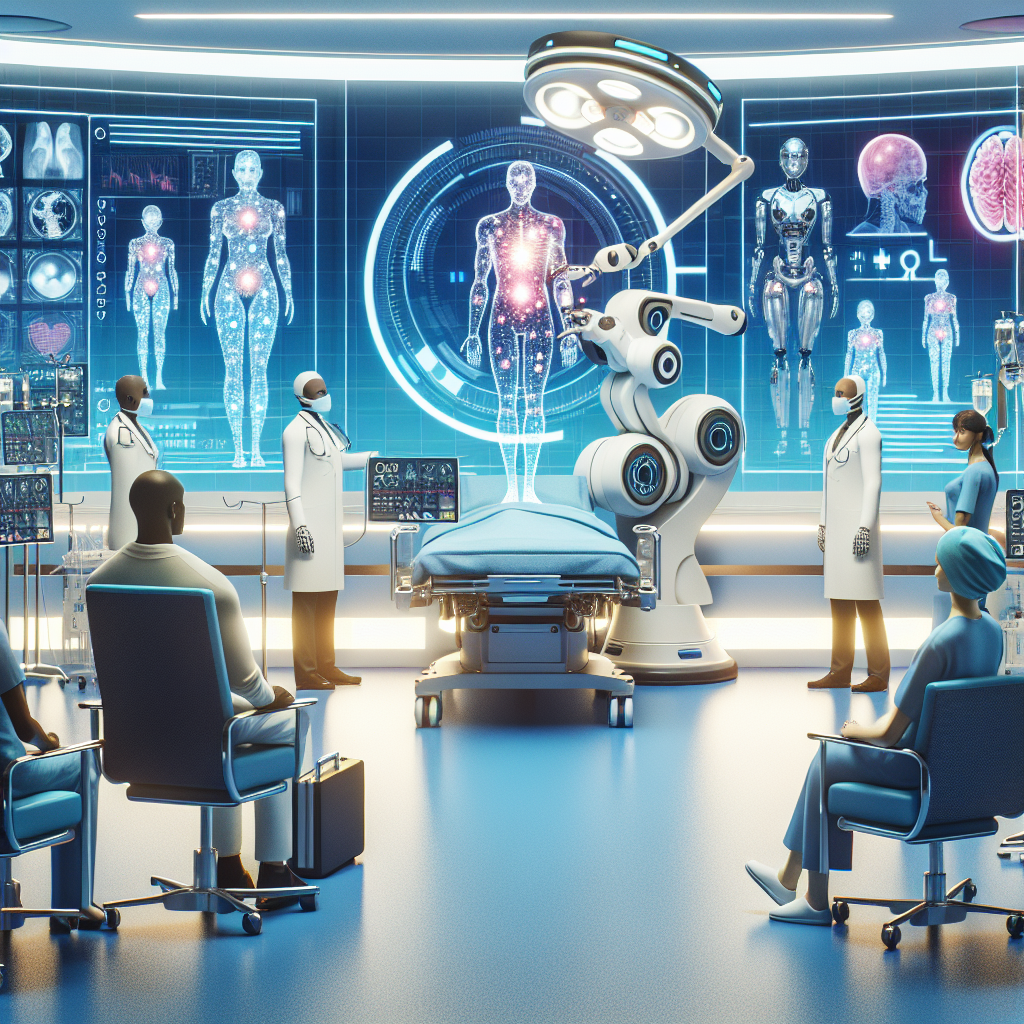The future of healthcare is constantly evolving, with technological advancements playing a major role in shaping the industry. One of the most exciting developments in healthcare technology is the use of artificial intelligence (AI) to improve patient care, streamline processes, and enhance overall efficiency. AI has the potential to revolutionize the way healthcare is delivered, making it more personalized, efficient, and accessible to patients around the world.
AI technology in healthcare encompasses a wide range of applications, from diagnostic tools to personalized treatment plans. By analyzing vast amounts of data, AI algorithms can identify patterns and trends that are difficult for humans to detect, leading to more accurate diagnoses and treatment recommendations. In addition, AI-powered chatbots and virtual assistants can provide patients with 24/7 access to medical information and support, improving communication and engagement between patients and healthcare providers.
One of the key benefits of AI technology in healthcare is its ability to enhance the efficiency of medical professionals. By automating routine tasks such as data entry, scheduling, and administrative work, AI can free up healthcare providers to focus on patient care and complex medical decision-making. This not only improves the quality of care but also reduces the risk of burnout among medical professionals, leading to a more sustainable healthcare system.
Another important application of AI in healthcare is in predictive analytics, which uses machine learning algorithms to identify patients at risk of developing certain conditions or complications. By analyzing patient data such as medical history, genetics, lifestyle factors, and social determinants of health, AI can help healthcare providers intervene early to prevent or manage chronic diseases, improve patient outcomes, and reduce healthcare costs.
AI technology is also being used to enhance medical imaging, enabling more accurate and timely diagnosis of conditions such as cancer, heart disease, and neurological disorders. By analyzing medical images such as X-rays, MRIs, and CT scans, AI algorithms can detect subtle abnormalities that may be missed by human radiologists, leading to earlier detection and treatment of diseases.
In addition to improving patient care, AI technology in healthcare has the potential to revolutionize medical research and drug development. By analyzing large datasets of genetic and clinical information, AI can identify potential drug targets, predict drug responses, and accelerate the discovery of new treatments for diseases. This can lead to faster and more cost-effective drug development processes, ultimately benefiting patients by providing them with more effective and personalized therapies.
However, despite the numerous benefits of AI technology in healthcare, there are also challenges and concerns that need to be addressed. One of the main concerns is the potential for bias in AI algorithms, which can lead to disparities in healthcare outcomes for certain populations. For example, if AI algorithms are trained on biased or incomplete data, they may produce inaccurate or discriminatory results, leading to disparities in diagnosis, treatment, and access to care.
Another challenge is the need for robust data privacy and security measures to protect patient information and ensure compliance with regulations such as the Health Insurance Portability and Accountability Act (HIPAA). As AI technology in healthcare relies on vast amounts of sensitive data, it is crucial to implement strong cybersecurity measures to prevent data breaches and unauthorized access to patient information.
Furthermore, there is a need for ongoing training and education of healthcare professionals to ensure they are equipped to effectively use and integrate AI technology into their practice. As AI continues to evolve and become more sophisticated, it is essential for healthcare providers to stay informed about the latest developments and best practices in AI technology to maximize its benefits for patient care.
In conclusion, the future of healthcare is bright with the integration of AI technology, which has the potential to revolutionize patient care, medical research, and drug development. By leveraging the power of AI algorithms to analyze vast amounts of data, healthcare providers can improve the accuracy of diagnoses, personalize treatment plans, and enhance the overall efficiency of the healthcare system. While there are challenges and concerns that need to be addressed, the benefits of AI technology in healthcare far outweigh the risks, paving the way for a more personalized, efficient, and accessible healthcare system for patients around the world.
FAQs:
Q: What are some examples of AI technology in healthcare?
A: Some examples of AI technology in healthcare include diagnostic tools, personalized treatment plans, predictive analytics, medical imaging analysis, virtual assistants, and chatbots.
Q: How can AI technology improve patient care?
A: AI technology can improve patient care by providing more accurate diagnoses, personalized treatment plans, early intervention for chronic diseases, enhanced medical imaging, and 24/7 access to medical information and support.
Q: What are some challenges of AI technology in healthcare?
A: Some challenges of AI technology in healthcare include bias in algorithms, data privacy and security concerns, and the need for ongoing training and education of healthcare professionals to effectively use and integrate AI technology into their practice.
Q: How can healthcare providers prepare for the future of AI technology?
A: Healthcare providers can prepare for the future of AI technology by staying informed about the latest developments and best practices in AI, implementing strong data privacy and security measures, and ensuring ongoing training and education of healthcare professionals to effectively use and integrate AI technology into their practice.

